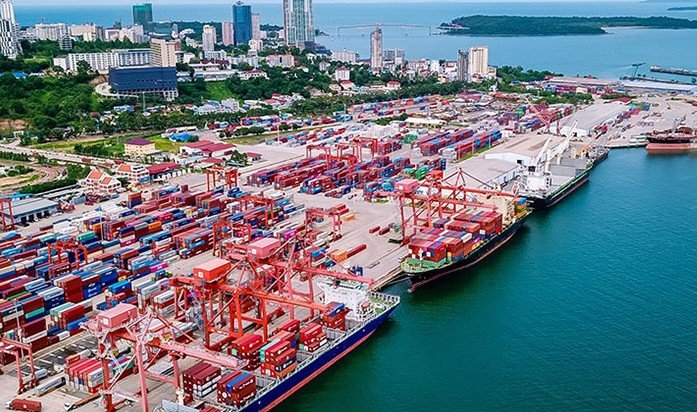Cambodia’s economic rise over the past two decades has been closely tied to Chinese investment. From glittering real estate projects in Phnom Penh to sprawling infrastructure initiatives, Beijing’s financial footprint is visible across the country. But as Cambodia deepens its reliance on China, concerns are growing over economic dependency, debt sustainability, and the broader implications for its sovereignty.
The China-Cambodia Economic Nexus
China is Cambodia’s largest foreign investor, with billions poured into construction, energy, and manufacturing. The Belt and Road Initiative (BRI) has funded major projects, including highways, bridges, and special economic zones. Official figures show that by 2023, Chinese investments in Cambodia exceeded $10 billion, solidifying Beijing’s role as the kingdom’s key economic partner.

While Cambodian officials tout these investments as critical to national development, critics warn of risks tied to overdependence. “Cambodia has benefited enormously from Chinese capital, but such heavy reliance exposes it to external shocks and geopolitical shifts,” said Chheng Kimlong, an economist at the Asian Vision Institute in Phnom Penh.
Booming Real Estate, Rising Debt
One of the most visible impacts of Chinese investment has been in Cambodia’s real estate sector. High-rise condominiums, luxury hotels, and commercial hubs have transformed the skyline of Phnom Penh and coastal cities like Sihanoukville. However, this boom has also led to concerns about oversupply and affordability. Many of these projects cater to Chinese investors and tourists rather than local Cambodians, leaving swathes of developments empty or underutilized.

Additionally, Cambodia’s debt to China has raised red flags. According to the World Bank, as of 2023, Cambodia’s external debt stood at around $9 billion, with a significant portion owed to China. While the government insists the debt remains manageable, experts warn that economic slowdowns or diplomatic rifts could put Cambodia in a precarious position.
Political Ties and Economic Leverage
The close relationship between Phnom Penh and Beijing extends beyond economics. Prime Minister Hun Manet, like his predecessor Hun Sen, has maintained strong ties with China, receiving high-profile visits and securing development agreements. Cambodia’s foreign policy has increasingly aligned with Beijing’s, including its stance on regional disputes like the South China Sea.
This alignment has fueled speculation that China’s economic support comes with political strings attached. “China’s investment is not purely economic; it also reinforces political influence,” said Sebastian Strangio, author of Hun Sen’s Cambodia. “Cambodia’s leaders must balance these benefits with the need for strategic independence.”
What’s Next for Cambodia’s Economy?
Despite concerns, Cambodia’s economic outlook remains optimistic. The government is actively diversifying its investment sources, strengthening trade ties with ASEAN, the European Union, and the United States. The recently implemented Cambodia-China Free Trade Agreement (CCFTA) and the Regional Comprehensive Economic Partnership (RCEP) are expected to boost exports and attract new industries.

However, long-term sustainability will depend on how well Cambodia manages its dependence on China while ensuring economic diversification. “Cambodia must leverage Chinese investment wisely, strengthening domestic industries and workforce capabilities,” said Kimlong.
As Cambodia’s economy evolves, the challenge remains clear: how to maximize the benefits of Chinese investment while safeguarding national interests and economic stability. The decisions made today will shape the country’s trajectory for decades to come.


